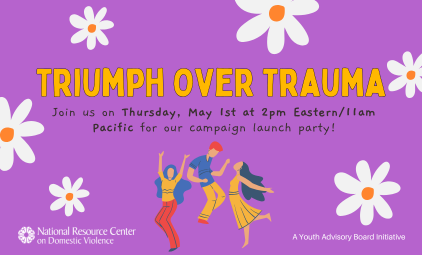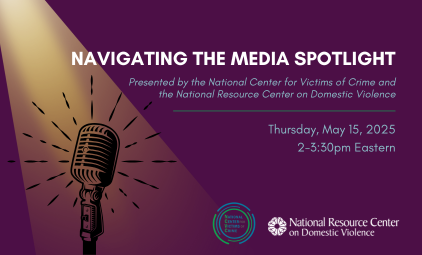![]() Our legal system, like many other social systems, operates within an abelist construct. Ableism is a systematic form of oppression that privileges people who are able-bodied over people with disabilities. A system like this is not universally or equitably accessible to many people. Working with a person who is nonverbal challenges some of the typical approaches to investigating and prosecuting a criminal case. In cases of sexual violence, where we know that people with disabilities are at increased risk of victimization (Powers, Hughes, Lund, & Wambach, 2009), investigators and prosecutors commonly rely on the verbal or written reports or testimony provided by the victim. In some cases, a person’s cognitive, developmental, or physical disability can make it difficult or impossible to speak or write.
Our legal system, like many other social systems, operates within an abelist construct. Ableism is a systematic form of oppression that privileges people who are able-bodied over people with disabilities. A system like this is not universally or equitably accessible to many people. Working with a person who is nonverbal challenges some of the typical approaches to investigating and prosecuting a criminal case. In cases of sexual violence, where we know that people with disabilities are at increased risk of victimization (Powers, Hughes, Lund, & Wambach, 2009), investigators and prosecutors commonly rely on the verbal or written reports or testimony provided by the victim. In some cases, a person’s cognitive, developmental, or physical disability can make it difficult or impossible to speak or write.
 Efforts to increase accessibility to the justice system fit well within broader systems advocacy work. Working with law enforcement officers or members of the District Attorney’s office consistently will help to pave the way for conversations and advocacy on meeting the needs of a victim or witness with a disability. Title II of the Americans with Disabilities Act (ADA) provides that individuals with disabilities must have equal opportunity to access state and local government services, programs, and facilities. The court system you are advocating within may have an accessibility coordinator to help ensure that accommodations are made. Regularly connecting and communicating with this person can ensure an ally in navigating the legal process. It may also be helpful to connect with a local disability rights advocate who can help you to think creatively about your advocacy and ways to increase accessibility.
Efforts to increase accessibility to the justice system fit well within broader systems advocacy work. Working with law enforcement officers or members of the District Attorney’s office consistently will help to pave the way for conversations and advocacy on meeting the needs of a victim or witness with a disability. Title II of the Americans with Disabilities Act (ADA) provides that individuals with disabilities must have equal opportunity to access state and local government services, programs, and facilities. The court system you are advocating within may have an accessibility coordinator to help ensure that accommodations are made. Regularly connecting and communicating with this person can ensure an ally in navigating the legal process. It may also be helpful to connect with a local disability rights advocate who can help you to think creatively about your advocacy and ways to increase accessibility.
According to Accessible Justice: Preparing Sexual Assault Victims with Developmental Disabilities for the Criminal Court Process (WCASA, 2007), many people with disabilities still experience treatment or reactions that limit attitudinal access to the court system. Societal attitudes and perceptions about people with disabilities often limit a person more than his or her disability. Using person-first language, offering explanations and choices throughout the legal process will go a long way in creating an inclusive atmosphere.
Advocating with and for a person who is nonverbal can lead to exploring ways of reporting or testifying that go beyond verbal or written communication. Keep in mind that a person who is nonverbal is not non-communicative. In Carly’s Voice (see video below), Arthur and Carly Fleischmann discuss the journey of learning to communicate so that Carly could express herself, share her experiences, and grown her intellect. Using images, nonverbal cues, personal communication devices, and other forms of assistive technology may provide an avenue for a person to provide testimony. Your role as an advocate, with the person’s informed consent, may be to work with the prosecutor to understand the abilities and limitations of communicating using nonverbal methods.
There are many organizations and advocates working to increase rights and access for people with disabilities. The Assistive Technology Program for the District of Columbia has provided training and education on the value and purpose of assistive technology. In a keynote address at a conference in Tennessee earlier this year, a speaker emphasized that people with disabilities have a right to a voice in the systems they live in. She shared the challenge: “nothing about us, without us” in our efforts to establish anti-ableist systems. Ultimately, setting a solid foundation of systems advocacy and accountability within your communities and systems will go a long way.
What are you doing to increase access for people with disabilities?















